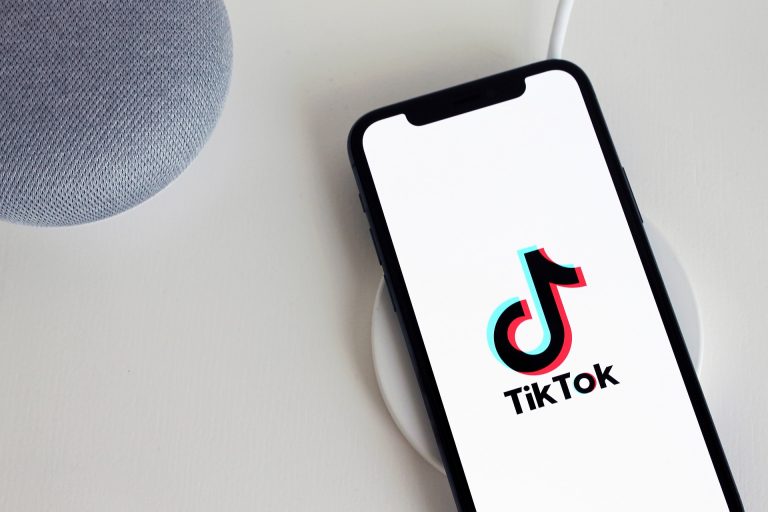On June 9, President Joe Biden passed an executive order reversing the Trump administration’s ban on Chinese apps such as TikTok and WeChat. A team of Republican lawmakers is now attempting to pass a bill that would ban the use of TikTok among federal government employees.
Canceling the Trump ban
Now listed as revoked, executive order 13942 was passed by former President Donald Trump on Aug. 6, 2020, due to security concerns related to TikTok. The order states that TikTok “automatically captures vast swathes of information from its users,” including internet activity, search history, and location data.
“This data collection threatens to allow the Chinese Communist Party access to Americans’ personal and proprietary information—potentially allowing China to track the locations of Federal employees and contractors, build dossiers of personal information for blackmail, and conduct corporate espionage,” the executive order states.
Trump’s bill also highlighted TikTok’s censorship practices, including the removal or suppression of content deemed “politically insensitive” by the Chinese Communist Party (CCP). Targeted content included discussions on Beijing’s treatment of minorities and the crackdown on Hong Kong protestors. Critics brought up the possibility of the app being a disinformation channel for Beijing.
Disinformation specifically refers to spreading false information on purpose, with malicious deceit, while misinformation is misleading information that is spread without malicious intent. In the hands of totalitarian regimes, disinformation tactics are used to manipulate and sway public opinion.
Success
You are now signed up for our newsletter
Success
Check your email to complete sign up
Biden’s executive order revoked Trump’s order, but instructs the Secretary of Commerce to “evaluate on a continuing basis” the following transactions:
- Those involving “connected software applications that may pose an undue risk of sabotage or subversion of the design, integrity, manufacturing, production, distribution, installation, operation, or maintenance of information and communications technology or services in the United States.”
- Those posing “an undue risk of catastrophic effects” on the resiliency or security of America’s digital economy or critical infrastructure.
- Those posing an “unacceptable risk” to America’s national security or threatening the safety of U.S. citizens.
In an interview with The Epoch Times, Mark Grabowski, an associate professor specializing in cyber law and digital ethics at Adelphi University, stated that TikTok was merely a “Chinese government malware masquerading as a social media app. The app collects way more data than it needs to… For example, it’s odd that TikTok does GPS [Global Positioning System] tracking since TikTok videos don’t display location information.”
Last year, cybersecurity experts from ProtonMail released a report stating that they found “TikTok to be a grave privacy threat that likely shares data with the Chinese government.” The authors cited the National Intelligence Law passed by Beijing in 2017, which gives the government the power to “compel any Chinese company to provide practically any information it requests, including data on foreign citizens.”
The information transfers to the government can be kept a secret and are not required to be revealed in transparency reports. Moreover, Chinese companies are required to have CCP cells, which are small committees or groups of CCP members, inside them so that Beijing can ensure the firms adhere to party rules and interests.
TikTok, owned by ByteDance, has been sued in several nations. ByteDance has deep ties with the CCP. A report by The Epoch Times states that at least 138 employees at the firm’s headquarters are part of the company’s CCP committee, occupying high management and technical positions.
In the Netherlands, the Market Information Research Foundation (SOMI), which represents a group of parents, sued TikTok for €1.4 billion (1.7 billion dollars), accusing the app of putting children at risk with its content. The group consists of over 64,000 parents. SOMI criticized the app for collecting data from children without parental consent. The group also highlighted the fact that several children around the world have died attempting to perform dangerous challenges on TikTok.
In Italy, a 10-year-old girl died while doing the “blackout challenge,” which encourages users to choke themselves until they lose consciousness. As a result, the government temporarily blocked TikTok for certain users in January. In April, TikTok was sued in the United Kingdom by former children’s commissioner for England Anne Longfield due to how the app collects and uses children’s data.
Bill S.1143
Republican Senator Josh Hawley criticized Biden’s decision to revoke the Trump ban on TikTok. “This is a major mistake – shows alarming complacency regarding #China’s access to Americans’ personal information, as well as #China’s growing corporate influence,” he said in a tweet.
Last month, the Senate Homeland Security and Governmental Affairs Committee unanimously passed Hawley’s “No TikTok on Government Devices Act” (S.1143) bill, which is co-sponsored by three other Republican senators – Marco Rubio from Florida, Rick Scott from Florida, and Tom Cotton from Arkansas.
The bill seeks to ban U.S. federal workers from downloading TikTok on government-issued devices. Hawley called the app an “immediate security threat” and urged the Senate to ban TikTok from official devices. He said that this was a “good first step towards taking Chinese espionage seriously.”
Rubio said in a statement that he was glad to see that the Senate was finally moving forward on the issue. “There is absolutely no reason why TikTok, an application that Beijing can use to collect Americans’ personal data, should be available on government devices.”
















